From Uvil Zajmi
Memorie.al / The former speaker of Albanian Radio – Television, recounts the years in the institution of the most important propaganda and information of the communist regime before the 90s: How he started his career by opening and closing the daily programs, what was his image of television in the dictatorship, how they found clothes and criticism when they went outside the frames. From her colleagues, her friends “Good Evening Misses”, to the sensational love with the “17 November” goalkeeper, Gud Tafaj, and the meeting after a derby match, where he had waited for the penalty that gave the team the trophy.
It was April 1960, when a speaker appeared from a one-story building on the side of “Kavajë Street”, together with the first historical TV show: “Dear TV viewers, Albanian experimental television starts its first show …..”, was the mythical phrase with which she addressed the few television viewers in those years.
And from that time almost half a century has passed, when Stoli Beli, a young girl was seen on the Albanian screen and for the following decades she would create the icon of national television. Although over the years, the speakers would change, others would follow Beli, the expression: “Dear viewers, good evening, we are starting the broadcasts…”, would remain unique, undivided, unchanged and that would accompany them in their career . The “Good Morning Misses”, of VATS, who gave life to this indispensable role.
Beautiful, charming faces, brunettes and blondes, with a natural smile, with a melodious sound, characteristic attitude, with a correct pronunciation, that’s how they have remained in the memory of the television audience, in its direct communication every evening with the small screen. Mimoza Tafaj was one of them. An important figure, a protagonist, when the black-and-white televisions of the “Butrinti” and “Dajti” brands, manufactured by URT Durrës (Radio-Television Factory), opened and closed the TVSH programs, as the only channel in those years. From the first moment of communication, I recognized her and understood that she was the former Moza, one of the “Good Morning Misses”, a beautiful voice, loved by the television audience.
I was looking for him in Tirana for a long time, but it was a surprise when I was informed and found him in America, where he has been living for several years. Unchanged, beautiful as then, educated and polite, she did not hesitate and even happily accepted the proposal to confess, showing in detail what she remembers: The first time on the screen, then work, intense television life, that family, colleagues, staying in Kuwait and moving to the USA. Longing for her friends, Tirana, passion and nostalgia for VATS, which remain with her even today.
Ms. Moza, do you remember the first day on the screen?
Of course. I started on television in 1974, when I was 17 years old. Violeta Hasani became the cause when she proposed to me: “Come and do a test, how does it appear on the screen”. That’s enough. I was in the test for speakers, of course as an outsider, Ilir Bibolli and Jani Kondili, for news reporters. As a procedure, it was looked at one more time, so it took some time, until the director Marash Hayati gave the approval. Osman Mula gave me my first help as a speaker, while I appeared on the screen in March of that year, with several instrumental concerts in the studio.
There I found Stoli Bel, the very popular speaker, Fatbardha Kraja, Zerina Kuke, Luljeta Notin. I stayed behind the cameras and watched how they acted, how they opened and closed, how they stood, how they spoke. I remembered starting with 1 to 2 times a week. The broadcast started at 18.00 with the midday news until 22.30 with the last ones. Some of the shows were recorded, only on the speakers, the news, i.e. “Revista Televizive” and “Koha sot e marr” with Petrit Leka, were live.
Are you at the beginning of a career or not?
I was lucky though, even though I was very young when I started. Being luckier and television has been a second home, a great life experience. It was a group of young people, boys and girls of the same age, in harmony, learning from each other. I loved working there, even though it was overtime. Whenever I entered the studio, the cameramen were with me: Lul Balla, Shpëtim Qatipi, Pajtim Kodra.
In this studio, the news was also given where we exchanged with Kiço Fotjadhi, Virgjil Kule, Tefta Radi, Dhimitër Gjoka, etc. While in editing, Ismail Balla gave me the first help and there I worked with journalists and operators such as: Petro Lati, Shkëlqim Alia, Minerva Kumi, Stefan Gajo, Gazmir Shtino, etc. Dearest to me were the editing and archive girls, without forgetting Sheje, the studio cleaner who sang and had a lot of humor.
You, parents, school, youth….?
I want to say that I didn’t have a problem with my parents, even when I told them that I will be a speaker on television, they welcomed me with pleasure. I was a simple guy and I was always in front of the opinion “how good is it on the screen, how is it possible” that my classmates and the school community told me. Among the parents I miss since they are gone, my mother has been critical, while my father has not. I remember that when they called me: “Mom called you”, I was anxious, since the first criticism was hers. “Moza, this doesn’t work”, or “Moza, you were good tonight”. Each person represents himself, especially for what appears on the screen, then the institution. Those are the years without publicity and advertising like today, and a good word had value, gave you pleasure.
From makeup, to fame, to people on the street…?
The first remains Zhaneta Petushi, a noble woman, my friend and friend. Then Edmond Lako, Eleni Toroveli, etc. As time went by, I started to learn by doing my own makeup and appeared on screen with my own makeup. The materials came from France; they were very good for us and the news ones.
Everything was on a weekly schedule, 2-3 times a week and every appearance on the screen had its own importance, in particular the one before and after the 8 o’clock news, which you had to be precise, focused on speaking without mistakes as it was hour of television streaming that was watched, as VATS was the only screen and was watched massively. The speakers were known not only in Tirana but throughout the country and they had become part of Albanian families. Every time I noticed people’s stares on the street, I wondered why they were looking at me, what’s wrong?
How much clothing was the problem?
During the presentation, we stood and had everything written on paper. The camera flash opened or the cameraman signaled “start” with his hand. Besides the trick, the clothing was a problem, as it was limited and had to be carefully curated. When you secured the outfit, the job was done. Although there was a wardrobe in VATS, in order to guarantee a slightly different and acceptable outfit, we tried to combine our simple things, or with the tailors of television, providing some normal blouses. The one that influenced us, perhaps even to imitate them a little, was Italian television, a window for us in those years, where we followed the shows, carefully watched the speakers, the news, everything.
Have you directed other shows?
I have been connected to the screen from March 1974 to 1999, the period when I gave the news and when I appeared for the last time. As a speaker from the fall of ’74, until August of ’85. I left Television in 2014 and in the 40th year of working in VATS, 25 years I have been on the screen, but in the 40th, in addition to my profession as a presenter, I was also an editor, this after giving birth. During these parallel years, I did the “Weekly Program”, a 30-minute show, on Sundays. In 1986, I started it with the much-watched music “Song to Song”, a music program designed according to the requests of viewers that was broadcast on Monday evenings.
Did you meet your husband from the screen?
I have known Guti before; I remember seeing him for the first time in the 70s. He attracted my attention not because of his fame, because of the acquaintances he had, but because he was dressed beautifully, with taste. We connected after three years, while I had started in VATS. When we went for a walk together, people knew us, certainly Guti more as a sportsman, then me from the screen.
I followed the sport as a fan of “November 17”. I remember that I was married, I was watching television at work, when I heard a loud scream from the “Qemal Stafa” stadium: “Dinamo”-“Tirana” was playing the final of the Cup; it was the moment when Guti had a penalty waiting for him and that gave the cup to Tirana. I remember that in the evening, Guti was not very enthusiastic, since Ilir Përnaska, a close friend of his, had shot the penalty.
Was being a speaker stressful?
At work, even though I went by bike, I was never late, even more so when you were connected to the live broadcast, which was a stress in itself, because you knew that there was no one else to open the program, it was just you, and that was very important. There are seconds, when you are followed in every detail.
From the posture, the head, the way you smile, the way you speak. It is a profession with special characteristics, but the most important strength remains the ability to be in tune with the public, to create a feeling, a visual contact, transmitting and creating a rapport so that the spectator becomes fond of your voice and face.
Slipping was normal, but it didn’t happen because we were careful. Phrases were set, you didn’t speak in your own words and you couldn’t add anything else. The tension ended at dinner, when after the presentation of the next day’s program, then with the words “…Good night…” greeting the viewers and quickly together with the others, we left and ran home.
Have you also presented a festival?
In 1979, it was the 18th Song Festival on Radio-Television, together with the actor Pirro Kita. I have a special detail from that festival: The dress was approved before, while on the last night, I used an unapproved dress, which was special, with a slightly raised collar. They gave me a lot of words, but there was no time to change it or find another one. “Why are you wearing it, another one has been approved”, they told me. But after finishing I was complimented on the dress.
I remember that the winning song was “Festë ka sot Albania”, with music by Agim Prodani, lyrics by Zhuliana Jorganxhi, sung by the duets Zeliha Sina-Liljana Kondakçi and Afërdita Laçi. Pirros was given a financial reward of 2,000 ALL as an outsider, while I received a box of Artistica “Migheni” as an employee of Radio-Television. Even in a documentary directed by Viktor Gjika, I contributed with a modest role.
What do you remember that you don’t want to forget?
After I gave birth to my son, I go to work and they tell me that I have to be on the screen. I agree with the head of programming to record me in the morning so that I don’t have to stay at work. This worked for some time, until one day by mistake, they output the closing of the program, i.e. I say good night at the beginning of the broadcast of the day’s program. I won’t forget it because it seemed my fault and it became a problem.
As for the other one, I don’t forgive myself for rejecting it: Vera Grabocka, the director, comes and tells me that: by order of the director, you will lead a recital concert, the first that was held in our country, and the two greats of Albanian music, Vaçe, will sing. Zela and Gaqo Chako. When I look at the text that I had to prepare in two days, I said no, I can’t do it. When I saw the concert with their best songs, my preparation was nothing. Even the moments when before the series ‘David Koperfildi’ was broadcast, every Tuesday evening, I made a summary of the past series. It was long minutes that I communicated with the public.
How did he act in special events?
After the inauguration of the Palace of Congresses, the 7th Congress of the APS will be organized. Within its environment, several monitors were placed and the presentation of the programs was recorded there, what I would speak during the days of its development. While in funeral cases, such as the moment when Hysni Kapo died, only funeral music was given, news about the event and there was no engagement for the speakers. When Enver Hoxha died, I was in the hospital. Otherwise, there was intensive work in the assembly. Very important in those years was the Great New Year’s Concert, with large musical groups recording in advance. For us speakers, the days of the New Year were very busy, to be as good as possible in presentation and clothing.
Family, screen, children
There are two lives or ways of living when you are on television: The one inside him and the one in the family, since when you get married it is more intense. Returning home was a surprise for the children, from the woman on the screen a few minutes ago, now their mother. The girl, when she was 5 years old, started from the heavy make-up I was doing and said to me: “Mom, when you came home, I didn’t recognize you, when you cleaned up, I said, here is my real mom”. Of the children, the son Glendi started like his father in football, but he continues like me in television.
While I remember this also for humor, my mother-in-law, when for holidays, birthdays, the women would gather and as usual they would also discuss the brides. My mother-in-law, after listening to them, said: “I have the best daughter-in-law, because she greets all the mothers-in-law of Albania, while saying “good evening or good night”. Guti’s family has been a great help to me, especially when I had a difficult show, with the children still young, returning late at night after long recordings, then back to work the next morning, without interruption. Without their help I would have had a hard time. On the screen you should have appeared as if you had no problem, but that was not the case.
How much has this profession changed today?
A lot, as she is no longer the classic talkative girl. I feel it when I see television channels, not only in America, but everywhere, both state and private, especially in the latter, where the selection has other criteria, I think, preferably a photo of models, young girls, with a very modern, with a more confidential and less institutional, non-traditional communication.
This is also due to the fact that television has undergone an electronic civilization. But, in many prestigious televisions, the figure of the speaker has been completely removed; it no longer exists, even in countries with tradition. But I have remained traditional. In 1994, we were in New York and for six months, I gave the Albanian news to a TV channel “Viktoria”, of the three Kosovar Osmani brothers. It was a special experience.
Would you like to be a “Miss Good Evening” again?
With pleasure. I have fond memories of that period. I worked non-stop winter, summer, New Year’s Eve, holidays, etc. For me, it has been an extraordinary experience from a professional point of view. I walked without thinking; my legs took me to the Television and only when I saw myself there. Of course, I would return with Stoli, Bardhë, Lulka, Zerina, Besa, Iva, Magnola, and Vilma.
Who would you single out among your colleagues, speakers of the screen?
Fatbardha Kraja is my friend; we have spent a life on the screen together. For these reasons, at least for a moment like in those years, we would return again. We keep our friendships, since the screen made us known, loved not only by the public but also by each other. I miss you and I remember with nostalgia that moment full of excitement when you were in front of the cameras and the viewer was standing in front of you. For another thing: After the broadcast, Guti was waiting for me. We walked the empty, quiet streets, on those evening nights, when it seemed like it was just you and no one else.
From Kuwait……to USA?
In Kuwait, I stayed only one year, accompanying Guti, who was in the technical staff of the Xharra team, along with coaches Skënder Gega and Ilir Biturku, as well as their families. For me it has been and remains a wonderful year, a different experience. A country with attractive customs and views. There were about 100 Albanians in Kuwait and Salmija was the most beautiful city where many foreigners lived. Then the transfer to the USA.
It’s been years, another part of my life that I share between Albania and America. I live with my daughter in the state of Oregon, the city of Portland, on the Pacific side. A country without Albanians, I spend a little time with the company of the girl who is surprised when they learn that I worked in television. I am a grandmother, with grandchildren and we have the pleasure of staying close to them. But I remember Tirana, Television, with nostalgia; I miss it, since I am far from my friends, from everything, even though I go back and forth systematically to Albania”.
At the end of this interview with Mrs. Moza Tafaj, we remember that in the history of Albanian Radio-Television, only girls, women, all protagonists of “Good Morning Misses” have been in this role. But, along with the years, something has changed. We no longer hear the half-century-old phrase “Good evening dear TV viewers” – now modernized to: “…Dear Ladies and Gentlemen….”! Along with the memorable closing greeting: “Dear viewers, good night…”, this also does not exist and is no longer heard! Memorie.al




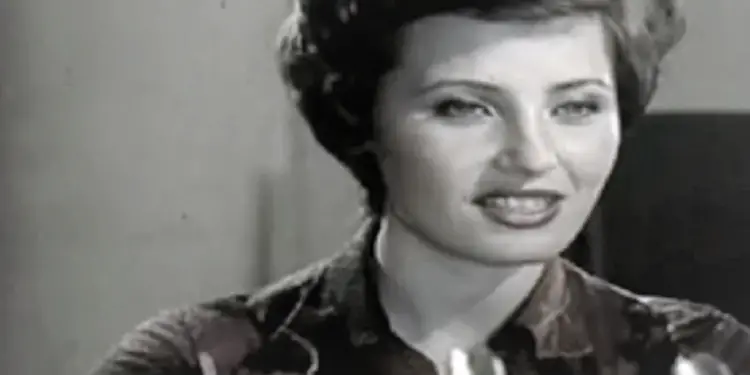
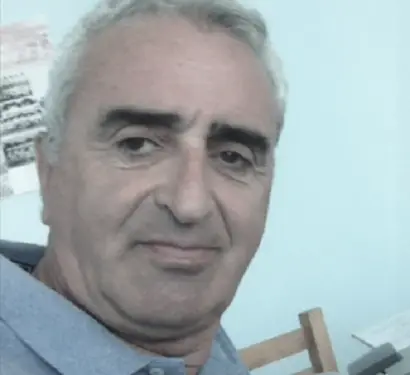
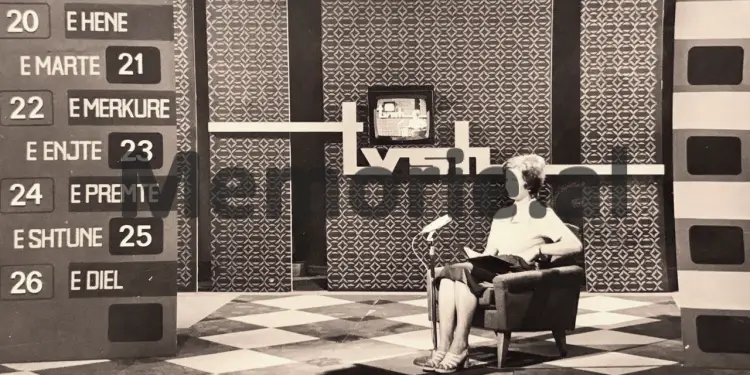

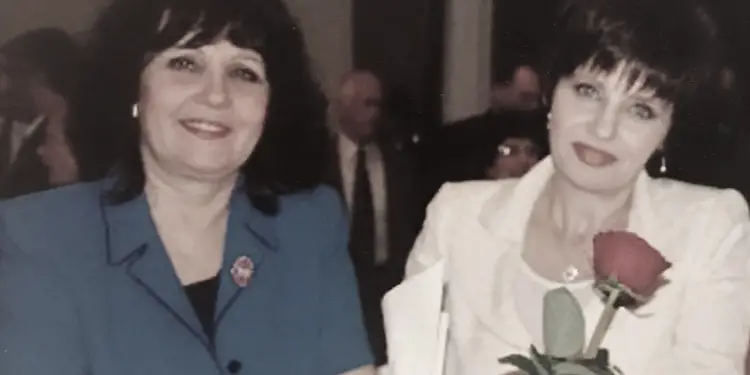
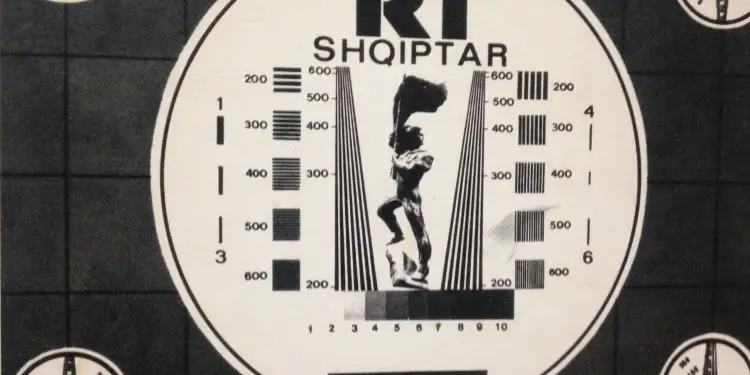
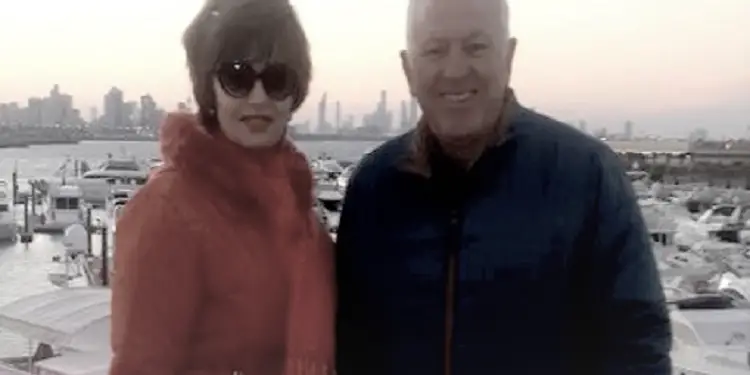
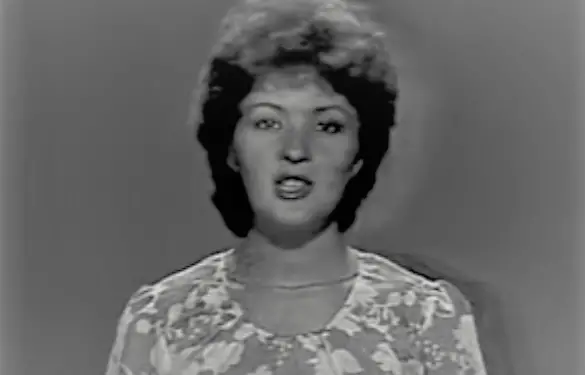
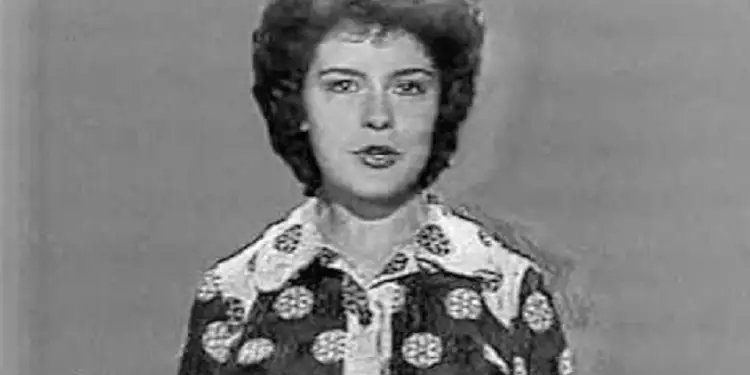
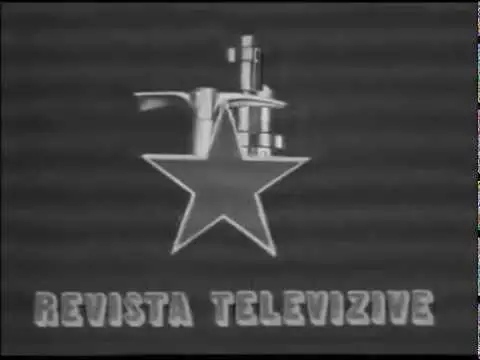



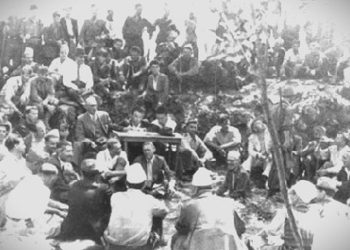
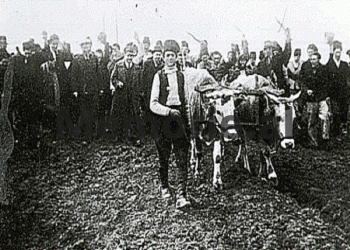
![“They have given her [the permission], but if possible, they should revoke it, as I believe it shouldn’t have been granted. I don’t know what she’s up to now…” / Enver Hoxha’s letter uncovered regarding a martyr’s mother seeking to visit Turkey.](https://memorie.al/wp-content/uploads/2026/01/Dok-1-350x250.jpg)
